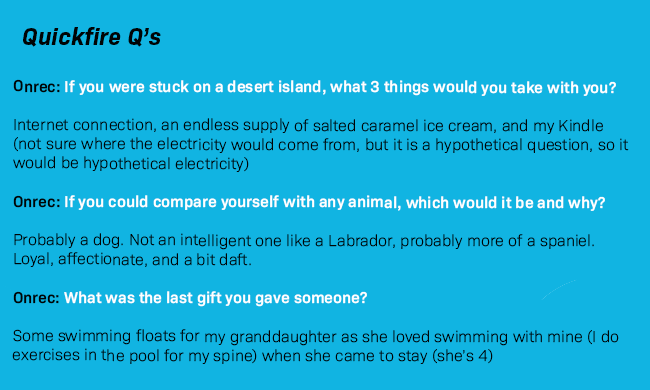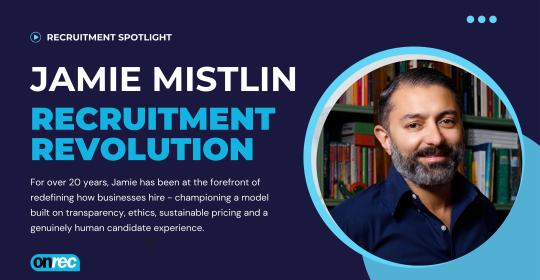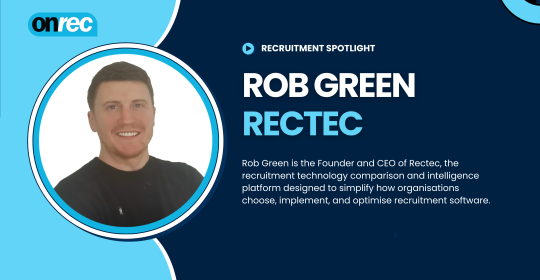Onrec: How did you get started in recruitment and how did the idea of Evenbreak surface?
I was in the field of general diversity and inclusion within employment, and was aware of a number of specific problems for disabled candidates looking for work. Many employers, erroneously, saw disabled candidates as less productive, expensive risks, or as ‘charity hires’. Other, fewer, employers recognised that disabled candidates are actually a valuable source of talent, but didn’t know how to attract them. Disabled candidates told me they didn’t know how to distinguish these two groups, because nearly all employers described themselves as ‘equal opportunities employers’, even ‘tho most weren’t – particularly when it came to disability – and were reluctant to apply and face continuous discrimination.
As a disabled woman (I have a degenerative spinal condition), this issue was a bit up close and personal, so I created a social enterprise called Evenbreak to address these problems. We promote the positive business case of employing disabled candidates (to challenge the ‘pity hire’ stereotypes), support employers to become more inclusive and accessible by removing disabling barriers, support disabled candidates in navigating around those barriers, and bring them together through an accessible job board.
Onrec: What makes you different from your competitors?
Many things! We are the only global specialist job board run by and for disabled people. Our lived experience of disability means we understand the barriers our candidates face. It gives us authenticity and credibility with disabled candidates, recruiters and employers. Our job board is designed to the highest possible accessibility standards. And we are so much more than the job board – we have an online best practice portal (a comprehensive range of practical online resources around disability inclusion in recruitment the workplace), we offer bespoke training and consultancy to organisations, and we have a free, accessible, career support service specifically for disabled candidates. All our services are designed and delivered by disabled professionals.
Onrec: What exciting new trends are you noticing?
Two positive trends emerged from the devastating pandemic. The first was a realisation that work can be successfully carried out flexibly, remotely, and in different times in different places, opening up the candidate market to many more people, including disabled people. Also, the skills shortages have meant that recruiters are now having to look much more widely for candidates, and are increasingly recognising the largely-untapped pool of disabled talent.
Onrec: What do you think will be the next big thing in online recruitment?
I hope that accessibility of online platforms will be the next big thing! So many websites are inaccessible, for example, to blind people who use screen-readers or people who have difficulty using a mouse and need keyboard shortcuts. Those who don’t improve their online accessibility will be missing out on a large pool of talent and will be in danger of being left behind.
Onrec: Biggest challenges we face going in to 2023?
Ongoing skills shortages – more job openings than suitable candidates to fill them, unless we open our minds to previously-ignored talent
Onrec: How many people do you employ globally?
Around 20 at the moment, but we’re all disabled, so that’s the equivalent of about 40 (!). And we’re growing – watch this space.
Onrec: Where do you see the recruitment industry in 5 years?
Much more modern and diverse, and using more inclusive, effective and innovative ways of assessing candidates (without relying solely on out-dated and unfit-for-purpose methods like CVs and interviews).
Onrec: COVID hit the industry hard. How did you manage and adapt?
Initially, I didn’t think Evenbreak would survive. Organisations just weren’t recruiting anyone, let alone disabled people. However, by the end of 2020, we were very much in demand as businesses were crying out for talent, and rather than going under we ended up doubling in size.
Onrec: Do you have any plans to expand? And if so, where?
Oh yes. We are already global, and advertise jobs in more than 100 countries. But those are mostly from international and global corporates. We will be expanding to advertise domestic vacancies within a number of countries, starting with Australia, later this year. We’re also looking at offering new services such as online learning (e-learning).
Onrec: What is one piece of advice you would give your younger self?
Be more patient – it will all come good!
Onrec: What do you enjoy outside of work?
I love spending time with my daughters and my granddaughter. I love exploring my adopted home city of London. And I love singing in local choirs (with more enthusiasm than skill, sadly).
Onrec: What is your career low and how did you overcome it? And what is your career high?
They are both the same – becoming disabled. I developed a spinal condition 18 years ago, and after a number of spinal surgeries it became apparent it wasn’t going to get better. I spent a number of years mostly in bed, and at one point thought I may never work again. As a single Mum with two daughters, that wasn’t an attractive proposition. However, as a result of becoming disabled I founded Evenbreak seven years later, and that turned out to be the best career move I ever made. Silver linings, and all that.







